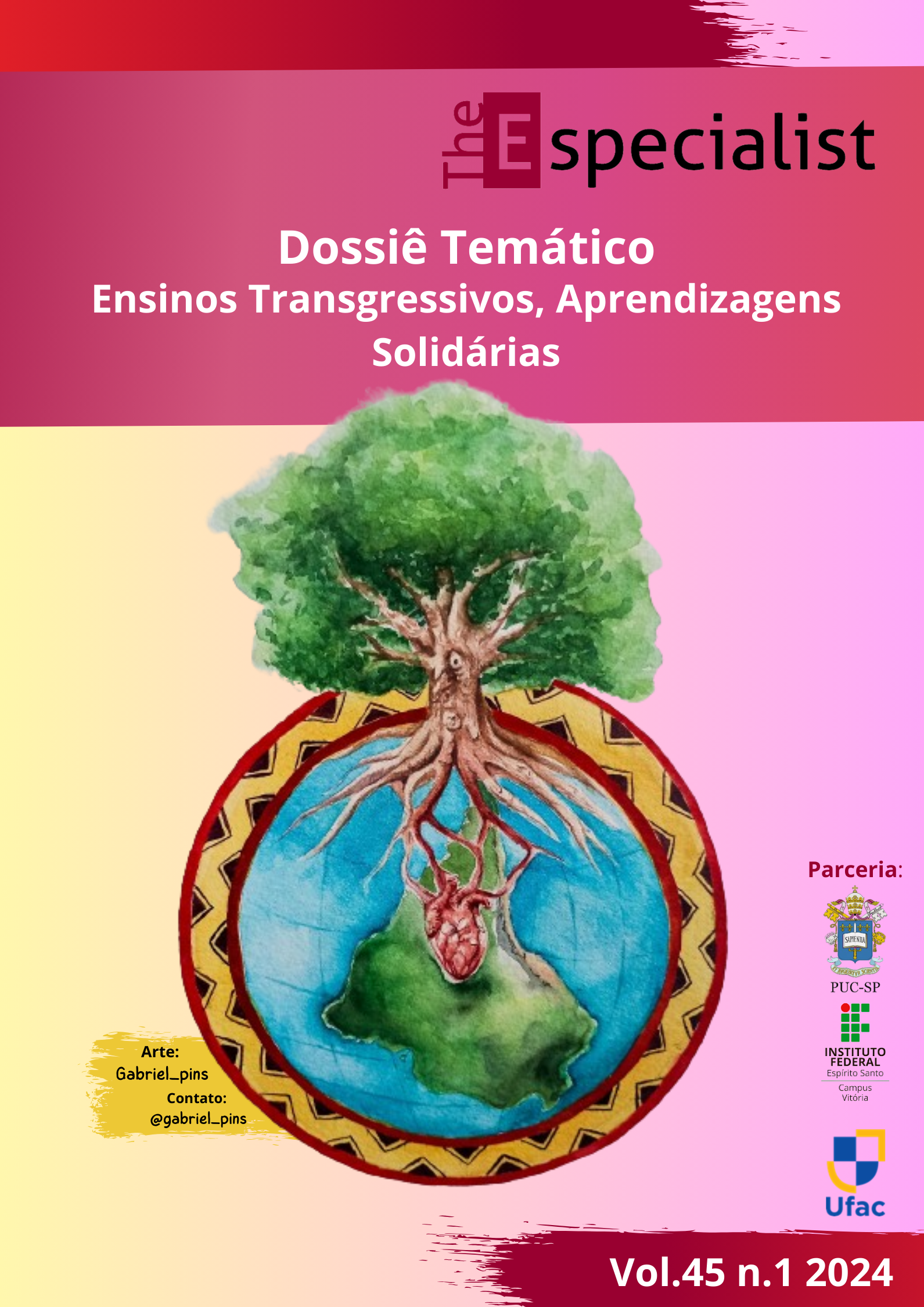De arregaçar as mangas
idiomatic expressions and proverbs in teaching brazilian portuguese to hispanic speakers from a contrast perspective
DOI:
https://doi.org/10.23925/2318-7115.2024v45i1e64546Keywords:
Portuguese language, Contrast, Hispanic learners, Idioms, ProverbsAbstract
Language teaching allows teachers to give students the chance to occupy spaces in different spheres. Some learn a language for personal tastes, others for professional reasons. When we learn another language, in addition to the linguistic aspects, we get to know cultural nuances and the way a society conceives the world based on its experiences and formulates its vision according to social identification. Therefore, the aim of this paper is to present and discuss the use of idiomatic expressions for teaching Portuguese to Spanish speakers, as well as contrasting them with expressions in the Spanish language. We believe that phraseology, which is the combination of words with a degree of idiomaticity, contributes to the communication of interlocutors (CORPAS-PASTOR, 1996; ZULUAGA, 2003; XATARA, 2013; ORTIZ ALVAREZ, 2014; MONTEIRO-PLANTIN, 2014). In this way, we show Brazilian Portuguese expressions that are used in everyday communication and that can be used in teaching Portuguese to natural Spanish speakers. Making use of phraseological elements in foreign/additional language classes can be a challenge for teachers who are already accustomed to the way they are taught. However, we would like to point out that teaching Portuguese as a mother tongue (PLM) is different from teaching it as a foreign/additional language (PLE), and seeking training is necessary in order to incorporate elements that are widespread in the culture and language in which the learners are inserted, since they contribute to their mastery of the language. In this way, we conclude that using idiomatic phraseology in the classroom is a support for teachers, since language and culture are inseparable, and presenting elements such as jargon, slang, proverbs, among others, enriches language learning.
References
dichos colombianos que debes conocer. Manual para entender los dichos de los colombianos. Colombia CO. Disponível em: https://www.colombia.co/cultura-colombiana/palabras-de-colombia/16-dichos-colombianos-que-debes-conocer/ . Acesso em: 08 abr. 2023.
FERREIRA, J. G. B. O ensino de língua portuguesa para estrangeiros: implicações da pluralidade de conceitos. Revista EntreLinguas, Araraquara, v. 7, n. esp.6, p. e021143, 2021. DOI: 10.29051/el.v7iesp.6.15423. Disponível em: https://periodicos.fclar.unesp.br/entrelinguas/article/view/15423 . Acesso em: 6 abr. 2023.
MENIQUETI, H. R. A Variação Linguística e o Ensino da Língua Portuguesa; 2020; Trabalho de Conclusão de Curso; (Graduação em Letras Português e Literaturas de Língua Portuguesa (EAD/NEAD Unicentro)) - Universidade Estadual do Centro-Oeste; Orientador: Maria Cláudia Teixeira.
PEDRO, M. L. As expressões idiomáticas no ensino de português como língua estrangeira para estudantes uruguaios. 2007. 189 f. Dissertação (Mestrado em Linguística Aplicada)-Universidade de Brasília, Brasília, 2007.
RIGONATTO, M. O que é variação linguística? Brasil Escola. Disponível em: https://brasilescola.uol.com.br/o-que-e/portugues/o-que-e-variacao-linguistica.htm . Acesso em 07 de abr. de 2023.
RODRIGUES, F. L. A. Língua e Cultura: sinergias indissociáveis no ensino-aprendizagem das línguas. 2014, 174. Relatório de Estágio para a obtenção do Grau de Mestre em Ensino do Português no 3º. Ciclo do Ensino Básico e Ensino Secundário e do Espanhol nos Ensinos Básicos e Secundário. Dissertação (Mestrado em Ensino de Português no 3º ciclo do ensino básico e ensino secundário e de espanhol nos ensinos básicos e secundários) – Universidade da Beira Interior, Covilhã, 2015.
SARMENTO, S. Ensino de cultura na aula de língua estrangeira. Revista Virtual de Estudos da Linguagem – ReVEL. V. 2, n. 2, março de 2004. ISSN 1678-8931 [www.revel.inf.br].
SARMIENTO, D. J. Dichos colombianos: 10 frases típicas de Colombia. Señal Colombia. Disponível em: https://www.senalcolombia.tv/cultura/dichos-colombianos-frases-tipicas . Acesso em: 08 abr. 2023.
SOUTO, M. V. L; ALÉM, A. O. F. G.; BRITO, A. M. S.; BERNARDO, C. Conceitos de Língua Estrangeira, Língua Segunda, Língua Adicional, Língua de Herança, Língua Franca e Língua Transnacional. In Revista Philologus, Rio de Janeiro, v. 1, n. 60, p. 890-901, set. 2014
XATARA, C. M. O campo minado das expressões idiomáticas. Alfa, São Paulo, 42 (n.esp.): 147-159, 1998.
Downloads
Published
How to Cite
Issue
Section
License
Copyright (c) 2024 The ESPecialist

This work is licensed under a Creative Commons Attribution 4.0 International License.
The authors grant the journal all copyrights relating to the published works. The concepts issued in signed articles are the absolute and exclusive responsibility of their authors.


 Esta obra está licenciada com uma Licença
Esta obra está licenciada com uma Licença 